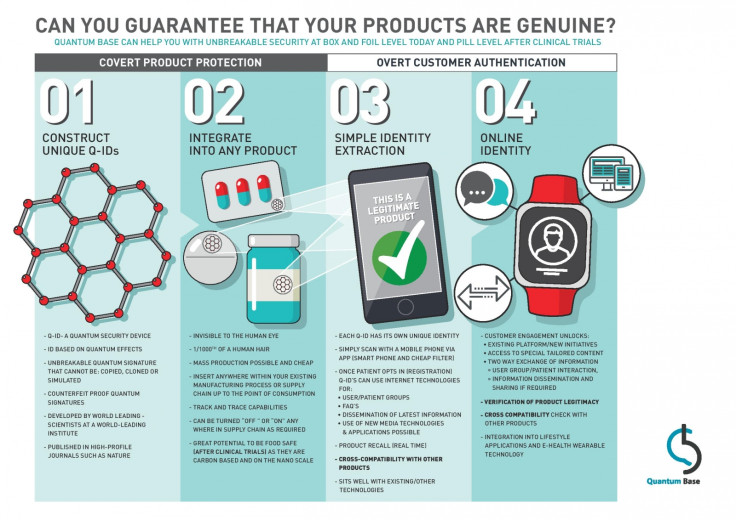Is this the world's most unhackable security? Researchers use quantum tech for forgeproof IDs
Invisible to the human eye and apparently impossible to crack, is quantum ID the future of security?
Researchers claim to have invented the world's first forge-proof ID, using nanoscale atom-based technology they say cannot be copied or cloned. The Quantum-ID (Q-ID) has been developed by Quantum Base, a spin-off company of the University of Lancashire, and uses graphene-like sheets containing atomic imperfections unique to each ID.
The state-of-the-art nanomaterials are the smallest material system available (about one-thousands the width of a human hair) meaning they can be covertly attached to authenticate anything from counterfeit consumer electronics, pharmaceuticals, driving licences, bank cards and even your clothes.
"The world we live in today is connected in a million different ways by technology, and yet we still haven't managed to find a 100% secure way to protect our data transactions and conversations. Passwords can be cracked, signatures forged, products faked. Our quantum security solutions can be incorporated into any product and are guaranteed by the laws of physics to be 100% provably secure," said Quantum Base co-founder Phil Speed.
How it works
Customers construct a unique Q-ID with its own quantum signature, which create a secure key depending on the position of millions of atoms. This 'sticker' is placed onto goods and users can scan the item with a smartphone and a notification will appear saying whether it is a legitimate product. Because they are so small and operate at ultra-low power they only cost around a penny to produce.

"Not since the arrival of the microprocessor 30 years ago will anything have as significant an impact on the consumer technology landscape," said Speed.
What this could mean for manufacturers and consumers could be significant not just for a way to foil counterfeit goods. It could revolutionise the banking industry's security and verification processes – including the online banking industry thanks to unique cryptokeys from its electronic variant of the Q-ID.
The company's own security is also based on atom technology meaning their servers also claim to be unhackable. The ID technology is currently four years into development and through investment Quantum Base is working on patent filings, a wider portfolio and are in talks with brands to begin product trials.
© Copyright IBTimes 2024. All rights reserved.






